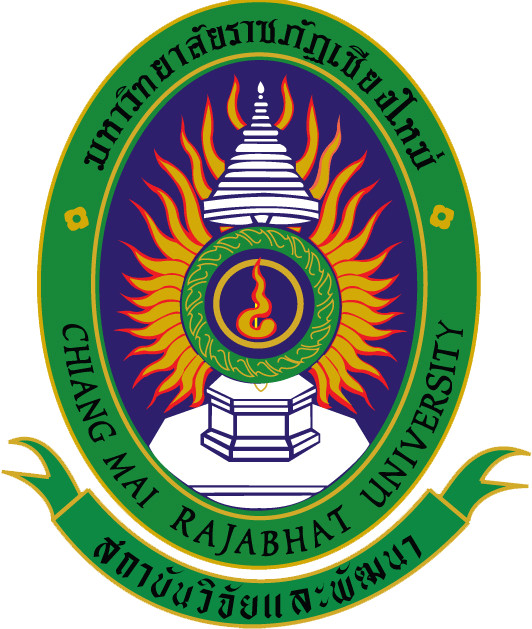
ระบบสารสนเทศงานวิจัย สถาบันวิจัยและพัฒนา มหาวิทยาลัยราชภัฏเชียงใหม่
Research Information System(RIS)
การยกระดับศักยภาพการจัดการขยะอาหารของร้านอาหารในจังหวัดเชียงใหม่ ตามยุคชีวิตปกติวิถีใหม่
ผู้ช่วยศาสตราจารย์ศิริจันทร์ เชื้อสุวรรณ
คณะวิทยาการจัดการ
คำสำคัญ :
เลขทะเบียน :
1580-65-MGT-TSRI
บทคัดย่อ
งานวิจัยนี้มีวัตถุประสงค์ เพื่อศึกษาถึงสถานการณ์ขยะอาหารและการจัดการขยะอาหาร รูปแบบการพัฒนาการจัดการขยะอาหารของผู้ประกอบการร้านอาหาร และนำเสนอแนวทางการจัดการอาหารส่วนเกินและการลดปริมาณขยะอาหารของผู้ประกอบการร้านอาหารในจังหวัดเชียงใหม่ การวิจัยใช้วิธีการแบบผสมผสาน การวิจัยเชิงปริมาณ ได้ใช้แบบสอบถามกับผู้ประกอบการร้านอาหาร ในอำเภอเมือง จังหวัดเชียงใหม่ จำนวน 400 ราย วิเคราะห์ข้อมูลโดยใช้สถิติเชิงพรรณนา ส่วนการวิจัยเชิงคุณภาพ ใช้การเก็บรวบรวมข้อมูลจากการสัมภาษณ์และการสนทนากลุ่ม กับร้านอาหารและ ผู้มีส่วนได้ส่วนเสีย โดยใช้การวิเคราะห์เนื้อหาและนำเสนอแบบพรรณนา
ผลการวิจัยสรุปได้ว่า ในช่วงปี 2563-2564 ซึ่งมีการแพร่ระบาดของเชื้อไวรัสโคโรน่า (โควิด 19) ซึ่งนำไปสู่วิถีชีวิตปกติใหม่ จังหวัดเชียงใหม่มีปริมาณขยะอาหารลดลงจากช่วงก่อนหน้านี้ ร้านอาหารมีการปรับตัว โดยมีบริการรับสั่งอาหารและจัดส่งอาหารให้ ปัจจัยสำคัญที่ส่งผลต่อปริมาณขยะอาหารของร้านอาหาร ได้แก่ประเภทอาหารที่ทำ และเทศกาล การจัดการขยะอาหารร้านอาหารประมาณครึ่งหนึ่งมีการคัดแยกขยะอาหารเป็นประจำ โดยจะนำไปทิ้ง ณ จุดรวบรวมขยะรอการเก็บขนไป ปัญหาที่พบคือบริเวณที่ทิ้งขยะสกปรก มีกลิ่นเหม็น และมีสัตว์พาหะนำโรค รูปแบบการพัฒนาการจัดการขยะอาหาร ให้คัดแยกขยะอาหารตั้งแต่แหล่งต้นทาง และนำไปใช้ประโยชน์ให้มากที่สุด เผยแพร่ความรู้การจัดการและใช้ประโยชน์จากขยะอาหาร เพื่อลดค่าใช้จ่ายและสร้างรายได้ แนวทางการจัดการอาหารส่วนเกิน โดยการปรุงเป็นเมนูใหม่ หรือส่งต่ออาหารให้กับผู้ที่ต้องการ ส่วนแนวทางการลดปริมาณขยะอาหาร ใช้การบริหารจัดการวัตถุดิบและการผลิตอาหารในแต่ละช่วงเวลาให้เหมาะสม ใช้โปรแกรมการจัดการอาหารช่วย นำเศษอาหารไปใช้ประโยชน์ และสร้างเครือข่ายความร่วมมือในการดำเนินกิจกรรมเพื่อลดปริมาณขยะอาหารอย่างต่อเนื่อง
Abstract
The aims of this research were to study the situation of food waste and fool waste management of restaurant, to development model for food waste management of restaurant and to present guidelines for managing excess food and reducing food waste of restaurant in Chiang Mai Province. The research used mixed-method approach. The quantitative research was conducted questionnaires for a sample of 400 restaurants in Mueang district, Chiang Mai Province and analyzed data by descriptive statistics. The qualitative research collected data though interviews and group discussions with restaurants and stakeholders. Analyzed data by content analysis and descriptive presentation. The research result concluded that during 2020-2021, the epidemic coronavirus (COVID-19) caused a new normal way of life. The amount of food waste in Chiang Mai had decreased from the previous. The restaurants have adapted by offering food ordering and delivery services. The main factors that affect the amount of food waste in restaurants were type of food and the festival. For food waste management, about half of restaurants sorted food waste regularly which was disposed at the waste collection point waiting to be transported. The problems encountered that the waste disposal areas were dirty, smelly and carrying disease animal carriers. Development of a food waste management model starting from sored the waste from the source and utilizing it as much as possible. Disseminate knowledge of food wasted management and utilization to reduce costs and generate income. Guidelines for managing excess food by cooking new menu or pass food to people in need. Reducing the amount of food waste by managing raw materials and food production in each period appropriately, using a food management program, utilizing food waste and creating a cooperative network in carrying out activities to continuously reduce the amount of food waste.
ไฟล์งานวิจัย
รายงานวิจัย ฉบับสมบูรณ์ ลายน้ำ.pdf
ข้อมูลการนำไปใช้ประโยชน์
6 19 ส.ค. 2565
สำนักงานคณะกรรมการส่งเสริมวิทยาศาสตร์ วิจัยและนวัตกรรม (สกสว.)
สำนักงานคณะกรรมการส่งเสริมวิทยาศาสตร์ วิจัยและนวัตกรรม (สกสว.) ชั้น 14 อาคาร เอส เอ็ม ทาวเวอร์ 979/17-21 ถนนพหลโยธิน แขวงสามเสนใน เขตพญาไท กรุงเทพฯ 10400
02 278 8200
callcenter@trf.or.th, webmaster@trf.or.th